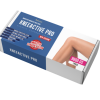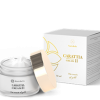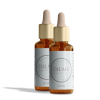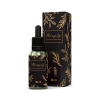Our ability to hear is a precious sense that connects us to the world around us. However, hearing issues can arise due to various factors, including genetics, aging, noise exposure, and underlying health conditions. In this blog post, we’ll explore different hearing issues, raise awareness about their causes, and provide effective prevention strategies to help you maintain healthy hearing for years to come.

1. Age-Related Hearing Loss: Age-related hearing loss, also known as presbycusis, is a common condition that occurs gradually as we grow older. To prevent age-related hearing loss or delay its onset, consider the following strategies:
Minimize exposure to loud noises.
Use ear protection when in noisy environments or when using loud machinery.
Regularly monitor your hearing health with professional check-ups.
2. Noise-Induced Hearing Loss: Exposure to loud sounds, whether from occupational noise, recreational activities, or personal listening devices, can cause irreversible damage to your hearing. To protect your ears from noise-induced hearing loss:
Wear earplugs or earmuffs in loud environments.
Limit exposure to excessively loud sounds.
Practice the 60/60 rule when using personal listening devices: Keep the volume below 60% and listen for no more than 60 minutes at a time.
3. Tinnitus: Tinnitus is the perception of sound or ringing in the ears without an external source. While it can have various causes, it is often associated with exposure to loud noises or underlying health conditions. To prevent or manage tinnitus:
Protect your ears from excessive noise.
Use relaxation techniques to reduce stress, as it can worsen tinnitus symptoms.
Limit your exposure to loud music or concerts.
4. Earwax Blockage: Earwax, or cerumen, is a natural substance that helps protect the ear canal. However, excessive buildup can lead to earwax blockage and temporary hearing loss. To prevent earwax blockage:
Avoid inserting objects into your ears to clean them.
If you experience symptoms of earwax blockage, consult a healthcare professional for safe removal techniques.
5. Ear Infections: Ear infections, especially in children, can cause temporary hearing loss. To prevent ear infections:
Practice good hygiene, especially when it comes to cleaning children’s ears.
Avoid exposure to secondhand smoke.
Ensure timely medical treatment for respiratory infections or allergies, as they can increase the risk of ear infections.
6. Ototoxicity: Certain medications, such as some antibiotics, chemotherapy drugs, and nonsteroidal anti-inflammatory drugs (NSAIDs), can have a side effect known as ototoxicity, causing hearing loss or tinnitus. To minimize the risk of ototoxicity:
Communicate with your healthcare provider about any hearing-related concerns before starting a new medication.
Follow the prescribed dosage and duration of medication use.
Report any changes in hearing during medication use.
Preventing hearing issues starts with understanding the potential risks and taking proactive steps to protect your ears. By implementing preventive measures such as minimizing noise exposure, using ear protection, practicing good ear hygiene, and seeking timely medical attention when needed, you can safeguard your hearing health and enjoy the richness of sound throughout your life. Remember, prevention is the key to maintaining healthy hearing and preserving one of life’s most treasured senses.






